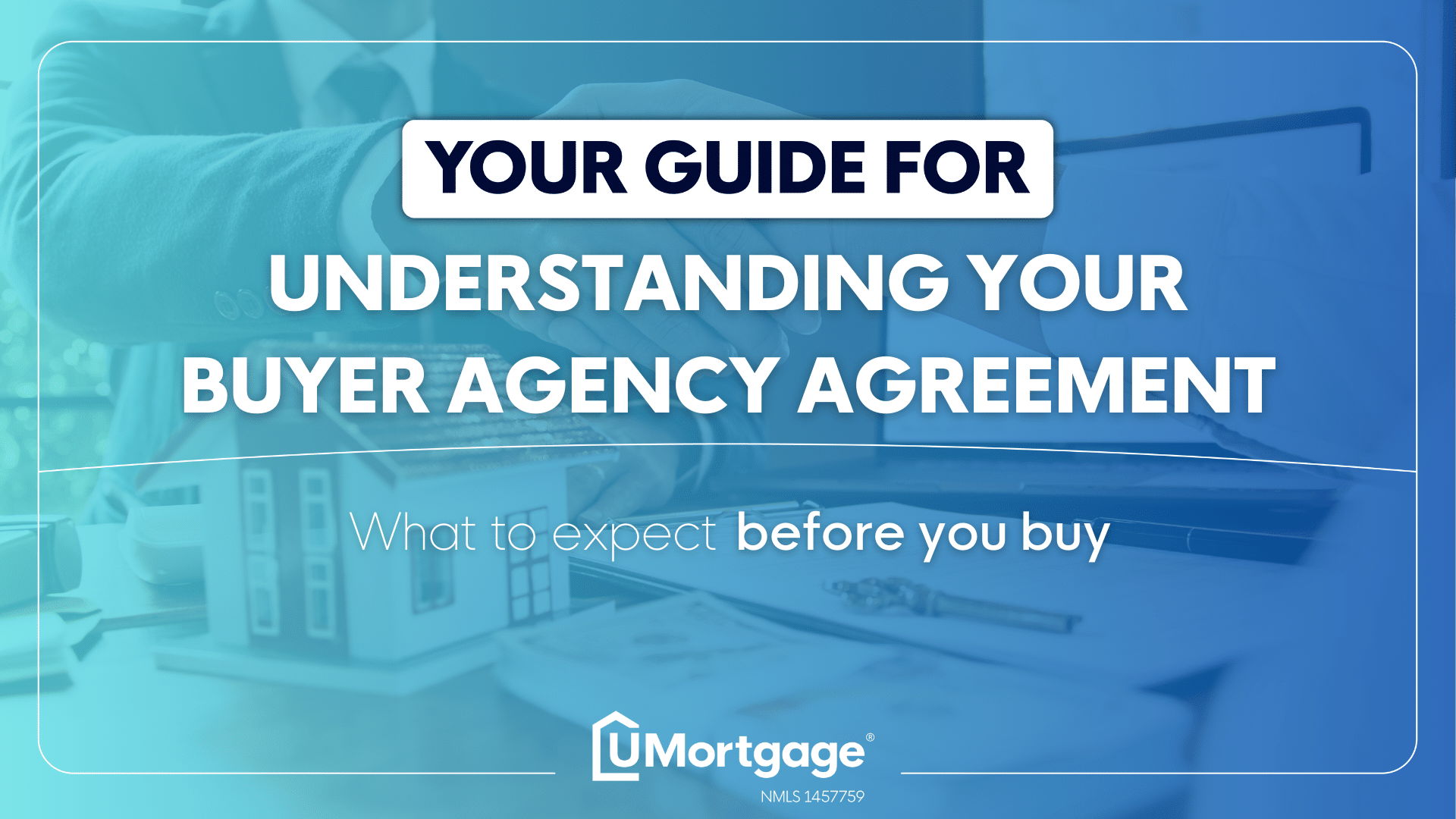Understanding the Basics of Buyer Agency Agreements
May 3, 2024

Understanding the Basics of Buyer Agency Agreements
As you're gearing up to embark on your homebuying journey, you'll probably want an experienced real estate professional to guide you through some of the intricacies and nuances that come with the process.
When you find a trustworthy real estate agent to work with, they might ask you to sign a buyer agency agreement. This agreement outlines the terms of your collaboration as you navigate the ins and outs of securing a mortgage for your dream home.
What is a Buyer Agency Agreement?
Simply put, a buyer agency agreement is a contract between you and the real estate agent or agency that you choose to work with during your homebuying journey. It will outline the terms, conditions, and expectations a buyer can expect from their real estate agent.
As a result of the recent NAR settlement, buyer agency agreements are required to be signed by buyers and real estate agents before the pair begin working together on the purchase of a home. These agreements aren't anything new, and they simply exist as a means to set clear expectations for both the agent and the buyer before the process beings.

What are the Usual Terms of a Buyer Agency Agreement?
These buyer agency agreements can vary based on the agent you choose to work with. Before signing this contract, it's important to understand exactly what's expected to ensure that you're getting exactly what you expect throughout the buying process. Below are the most common terms included:
- Agent's Responsibilities: The most common and often most important terms you'll find in your buyer agency agreement are the agent's responsibilities. Simply put, these responsibilities are the tasks you can expect your agent to perform for you until you close on your home. It can include scouting potential listings and open houses, writing and sending your offer letter, and completing your closing paperwork.
- Term Length: The homebuying process is complicated, and, because of a multitude of factors, can be drawn out for as long as a year. Your buyer agency agreement will typically outline the duration of time that you can expect to work with your agent. The term length is negotiable, so if you have a clear idea about your homebuying time frame, be upfront with your agent so it's agreed upon in the contract.
- Commission: Real estate agents earn their living on a commission when they close a deal. Most commonly, the buyer's and seller's agents receive a commission that ranges between 4-6% of the property's sale price. If the buyer's and seller's agents are the two brokers of this transaction, they will typically split the commission. Most commonly, agents receive this compensation through seller concessions or closing costs, but it's important to understand exactly how your agent expects to be compensated before you get started to avoid any unexpected costs.
- Exclusivity: As we mentioned above, your agent receives their compensation at the end of the deal. Because of this, it's often in their best interests to ensure that you will commit to working exclusively with that agent to protect themselves in the long run. There are buyer agency agreements that include non-exclusivity and exclusivity, so make sure to scan your agreement for these terms to avoid breaking the terms of your contract.
- Termination: It's not ideal, but if you or your agent partner are either unsatisfied with the partnership or you face an unexpected roadblock in your homebuying journey, there will typically be a termination contingency baked into the contract.

Why Should You Care About Your Buyer Agency Agreement?
Buying a home is one of the biggest commitments you can make. It's crucial to work with experienced real estate and mortgage professionals who can guide you through the process and look out for your best interests.
Having set agreements in place and a thorough understanding of every party's expectations is the first step towards a smooth and stress-free homebuying experience.
When you begin working with an agent, it's important to be straightforward and upfront with your desires, expectations, and timeline for your homebuying journey. While putting pen to paper can feel like a big moment, a buyer agency agreement is a commonplace contract that protects both you and your agent and lays the foundation for a successful homebuying experience.
By formalizing your relationship with a mortgage professional, you gain reassurance knowing you have someone in your corner who's advocating for your best interests.
If you're searching for a trustworthy and experienced real estate agent to help you achieve your dreams of homeownership, feel free to reach out! I have plenty of experienced partners who possess the necessary market knowledge, neighborhood savvy, and value to help you find a house that feels like home sweet home.